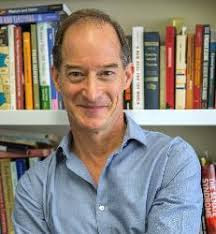
- This event has passed.
The Senate: From White Supremacy to Governmental Gridlock
October 25, 2021 @ 5:30 pm – 7:00 pm
Join us for this lively analysis by UC Santa Cruz Professor of Politics Daniel Wirls of the U.S. Senate, its relation to our other institutions of government and the constitutional system as a whole, and the role of the “world’s greatest deliberative body” in undermining effective government and maintaining white supremacy in America.
In his new book The Senate: From White Supremacy to Governmental Gridlock Wirls argues, from the founding era onward, the Senate constructed for itself an exceptional role in the American system of government that has no firm basis in the Constitution. This self-proclaimed exceptional status is part and parcel of the Senate’s problematic role in the governmental process over the past two centuries, a role shaped primarily by the combination of equal representation among states and the filibuster, which set up the Senate’s clash with modern democracy and effective government and has contributed to the contemporary underrepresentation of minority members. If constitutional changes to our institutions are necessary for better governance, then how should the Senate be altered to be part of the solution rather than part of the problem? This book provides one answer.
Presented by the UC Santa Cruz University Forum and co-sponsored by the Institute for Social Transformation.

Daniel Wirls
UCSC Professor of Politics
Wirls received his PhD in Government from Cornell University in 1988 and has been teaching at UC Santa Cruz ever since. Dr. Wirls’s research interests range across American politics, institutions, public policy, and political history. He has published work on the founding period and the early Senate, antebellum representation in the Senate and House, the Seventeenth Amendment, Cold War and post-Cold War military policy, and contemporary political transformations. His other books include The Invention of the United States Senate (2004), Irrational Security: The Politics of Defense from Reagan to Obama (2010), and The Federalist Papers and Institutional Power in American Political Development (2015).

Chris Benner, moderator
UCSC Professor of Environmental Studies and Sociology
Benner is Director of the Institute for Social Transformation, the Dorothy E. Everett Chair in Global Information and Social Entrepreneurship, and the Director of the Everett Program for Technology and Social Change. Rooted in an urban political ecology approach, his research examines relationships between technological change, regional development, and the structure of economic opportunity, focusing on regional labor markets and the transformation of work and employment. He received his BA in African Development Studies from Dartmouth College and his PhD in City and Regional Planning from UC Berkeley.

